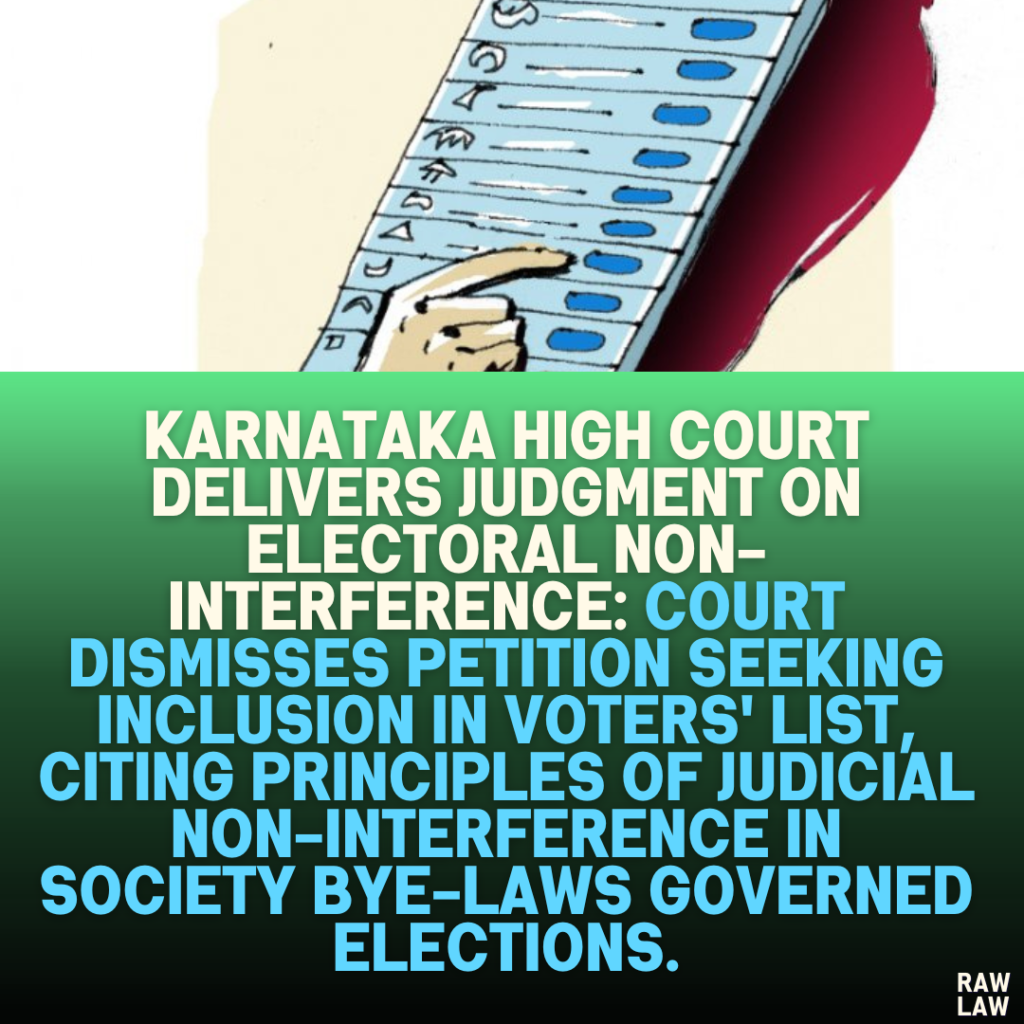Court’s Decision:
The Karnataka High Court dismissed the writ petition, holding that courts should refrain from interfering in the electoral process once it has commenced. The court also noted that the inclusion or exclusion of members in the voters’ list is governed by the bye-laws of the society and not the Karnataka Societies Registration Act, 1960.
Facts:
The petitioners sought inclusion in the final voters’ list for the upcoming election to the Managing Committee of a society registered under the Karnataka Societies Registration Act, 1960. They argued that their exclusion was improper and requested the court’s intervention.
Issues:
- Whether the petitioners’ names should be included in the final voters’ list for the society’s Managing Committee election.
- Whether the court can intervene in the electoral process of the society after it has commenced.
Petitioner’s Arguments:
- The petitioners contended that their exclusion from the voters’ list was arbitrary.
- They sought the court’s directive to include their names in the final voters’ list.
Respondent’s Arguments:
- The respondents argued that the election process had already begun and any interference at this stage would disrupt the electoral proceedings.
- They emphasized that the elections are conducted as per the society’s bye-laws, which have contractual binding among its members.
Analysis of the Law:
The court referred to established legal principles that prohibit judicial interference in elections once the process has commenced. Additionally, it clarified that the Karnataka Societies Registration Act, 1960, does not govern the conduct of such elections, which are instead subject to the society’s bye-laws.
Precedent Analysis:
The court relied on the general principle that interference in ongoing elections could undermine the democratic process. Specific judgments were not cited, but the reasoning aligns with prior rulings that maintain the sanctity of electoral processes.
Court’s Reasoning:
- The court emphasized that elections are conducted per the society’s bye-laws, which act as a contractual framework among members.
- It noted that the bye-laws alone determine the inclusion or exclusion of members in the voters’ list.
- Judicial interference after the commencement of the election would disrupt the process and violate legal principles.
Conclusion:
The writ petition was dismissed. The court held that the petitioners’ grievances must be addressed within the framework of the society’s bye-laws rather than through judicial intervention.
Implications:
The decision reinforces the principle that courts should avoid interfering in ongoing electoral processes to preserve their integrity. It also highlights the autonomy of societies to manage their internal affairs as per their governing bye-laws.
